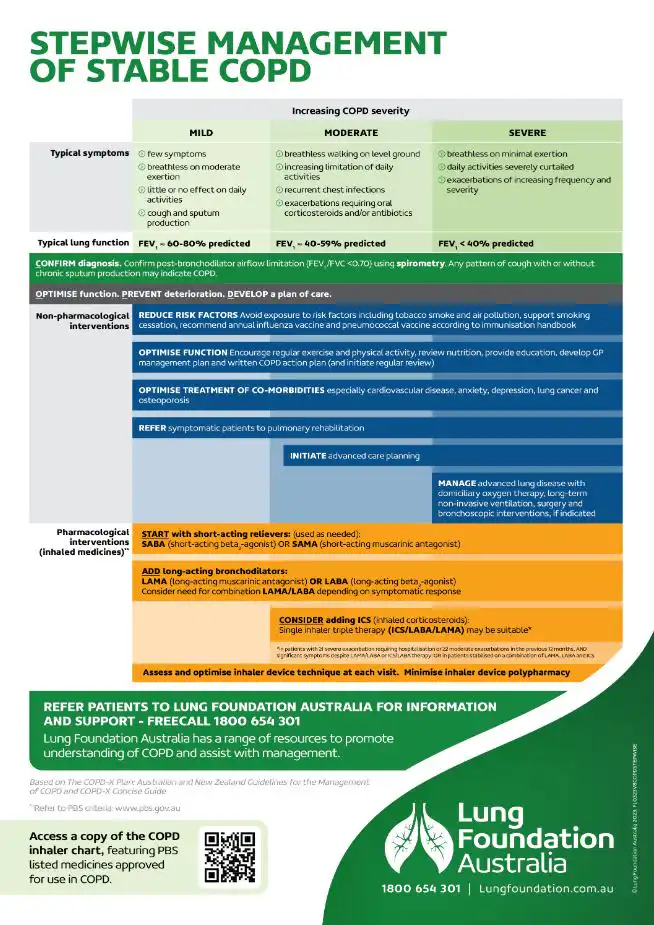The Stepwise Management of Stable COPD resource from Lung Foundation Australia is a practical guide designed to help healthcare professionals manage Chronic Obstructive Pulmonary Disease (COPD) effectively. It provides a structured, evidence-based approach to treatment, ensuring that care is tailored to the severity of the disease and the needs of each patient. The guide focuses on optimising lung function, reducing exacerbations, and improving overall quality of life.
A key priority in COPD management is reducing risk factors. The resource highlights smoking cessation as the most effective way to slow disease progression, recommending smoking cessation support for all patients. It also emphasises minimising exposure to environmental pollutants and ensuring patients receive influenza and pneumococcal vaccinations to prevent respiratory infections that can worsen COPD symptoms.
Maintaining lung function is another crucial aspect of COPD care. The guide encourages regular exercise, with pulmonary rehabilitation playing a vital role in improving physical fitness and symptom management. Nutritional support is also recommended to maintain overall health. Additionally, the guide stresses the importance of developing a personalised COPD action plan, allowing patients to monitor their condition and respond appropriately to changes in symptoms.
Pharmacological treatment is presented in a stepwise manner. Short-acting bronchodilators provide immediate relief, while long-acting bronchodilators (LAMA or LABA) are introduced as the disease progresses. For patients with frequent exacerbations or severe symptoms, inhaled corticosteroids (ICS) may be added in combination with bronchodilators. The guide underscores the importance of correct inhaler technique and regular medication reviews to ensure effective treatment.
Managing comorbidities such as cardiovascular disease, anxiety, depression, and osteoporosis is essential, as these conditions can significantly impact COPD management. The guide also provides recommendations for advanced COPD care, including oxygen therapy, non-invasive ventilation, and palliative care. Advanced care planning is encouraged to align treatment with patient preferences and goals.
By following this structured approach, healthcare professionals can provide personalised and proactive COPD management, helping to reduce hospitalisations and improve patient outcomes. This resource serves as an essential tool for delivering high-quality, evidence-based care to Australians living with COPD. Healthcare providers are encouraged to integrate these strategies into their practice to enhance patient wellbeing and long-term disease management.
Was this page helpful?
Good job! Please give your positive feedback
How could we improve this post? Please Help us.
